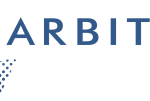The time of day of the job interview is often overlooked.
By Dana Manciagli, Contributing Writer
Bizjournals.com, December 14, 2016 —
Job interviews aren’t just about thorough preparation and quick thinking — although those aspects are certainly at the top of the list. There’s another lesser-known success factor that is often overlooked: The time of day the job interview is held.
Many finance executives say they have a strong preference when it comes to the timing of interviews with prospective hires. In a recent Accountemps survey, 61 percent of chief financial officers (CFOs) polled said they believe between 9 a.m. and 11 a.m. is the most productive time for conducting job interviews.

ISTOCK (KUPICOO)
The majority also say they need only a few minutes to get an impression of the candidate — more than half of CFOs form a positive or negative opinion of a candidate within the first 15 minutes.

As a hiring manager, you might consider avoiding interviews during the afternoon, when energy and attention levels often drop after lunch. As a job candidate, you may not have control over the timing of your job interview, but, if possible, you can give yourself the best chance of getting an offer by requesting this mid-morning sweet spot.
“Mid-morning is an ideal time for a job interview because it gives the interviewer time to set daily priorities and settle into his or her day before the meeting,” said Bill Driscoll, a district president for Accountemps. “Avoid scheduling an interview late in the afternoon when fatigue sets in. Late afternoon is also the time when interviewers may start shifting their focus to personal priorities.”
First impressions during a job interview can be telling. “A first impression starts with the initial handshake,” Driscoll said. “What you wear, your demeanor, and body language are details that interviewers assess within the first few minutes of meeting someone.”
Many interviewers will start the job interview with an open-ended question such as, “Can you tell me a little about yourself?” This is often an opportunity for the candidate to shine by briefly summarizing relevant work experience and objectives.
Make a lasting first impression to win the offer
Given that you may have only 15 minutes to make an impact on the interviewer, as a job candidate, you’ll want to bring your A game. Be prepared to:
– Give specific examples of your past successes. While you may have gone over this summary many times to prepare for the job interview, you’ll want to avoid coming across as if you’re speaking by rote.
– Provide polished answers to questions. Research responses to common interview questions in advance so you waste no time getting to the point.
– Have some well-worded questions to ask the interviewer. This will help you avoid being caught unprepared when it’s your turn to pose questions or saying something impulsive.
Try to take time off for the interview if you are currently employed. It’s often best to take personal leave, if possible, rather than relegating the interview to what may be a less- advantageous time — lunch or after work.
Above all, be on time. This hard-and-fast rule of interviewing is even more unbreakable when you have only a few minutes to make that first impression.
Evaluate candidates during the job interview and beyond
As a manager, you understand that hiring the right employees is critical to your organization’s success. While first impressions are important — even those based on 15 minutes or less — there can be serious drawbacks if managers rush to judgment.
To broaden your view into the candidate’s attitudes and personality:
– Try asking some less conventional interview questions. Beyond the queries about job accomplishments and skills, ask questions such as, “If you didn’t have to work for money, what would you be doing?” or “What bloggers and news sources do you follow, and why?”
– Ask other members of your team — including administrative or junior staff — about their experiences with the candidate. Someone who interviewed well may be eliminated from consideration after you discover a member of your staff got the “Jekyll and Hyde” treatment.
– Don’t forget soft skills. The ability to communicate clearly with customers, for example, can be critical to an employee’s contribution to the team.
The idea is to avoid forming an opinion within the first few minutes of the interview and closing yourself off to additional information that may contradict it.
Make the most of the interview — whenever it may happen
As a job seeker, being invited to interview with a company you’re interested in is always a good thing — regardless of the timing. There’s no harm in politely asking for a mid-morning job interview if you are offered a different time of day.
If your request can’t be met and your interview is scheduled for what seems like a less advantageous time, don’t lose heart. Not all managers share the mid-morning preference. Some survey respondents said they prefer to conduct job interviews later in the day. Whatever the time of day, remember to make the most of that first impression.
Dana Manciagli is a global career expert, private job-search coach, and master class instructor. She has spent more than 30 years as a Fortune 500 sales and marketing executive, including more than a decade at Microsoft. Manciagli is the author of the book “Cut the Crap, Get a Job!” and a prolific blogger. She sits on the worldwide board of Junior Achievement and has an MBA from the Thunderbird School of Global Management.









